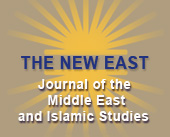The Making of Kuwait: The Struggle of Elites in a Commercial Chiefdom
Eran Segal
Kuwait has been ruled since its foundation in the eighteenth century by the same family (al-Sabah). Extended family rule is a common occurrence in the Gulf, however the negligible internal conflicts combined with minor foreign influence has created a unique combination yet to be thoroughly researched. The historical process of forming family rule through ties with the heads of society progressed by way of a dialectic for which basic concepts of Western research, such as democracy, dictatorship, republic and monarchy, do not offer a satisfactory explanation.
Throughout the period until the end of 1930s, the main roles in this dialectic have remained in the hands of two main groups: rulers and merchants. Accordingly, this article applies the research of elites to analyze the historical process. It analyzes the evolution of Kuwaiti society until the shaping of the socio-political order at the end of the 1930s, before oil was discovered. In the beginning, i.e. the eighteenth century, there was a commercial society where the ruler was part of the elite; at the end of the period, i.e. the 1930s, we find a much more dominant ruler still, however, committed to his family and the founding elites that gave him legitimacy and stability. This phenomenon is more remarkable when taking into consideration that this society was on the verge of experiencing great strides in modernization and development processes but with almost no significant or indeed destructive political and social consequences.

